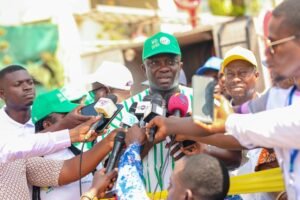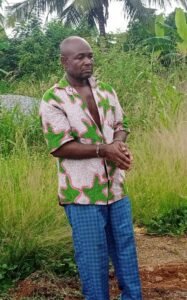
Government, through the Ministry of Fisheries and Aquaculture Development, is working assiduously to address the challenges confronting the fisheries and aquaculture sector in Ghana, particularly Illegal, Unreported and Unregulated (IUU) fishing and depleting marine fish stocks.
In this regard, the ministry is currently working on the Development of Fisheries Co-Management Policy to enhance fisheries management and the enactment of new Fisheries Act to replace the existing Fisheries Act, 2002 (Act 625) to incorporate emerging trends in fisheries management and address inconsistencies in the existing Act.
This was announced the Chief of Staff, Mrs Akosua Frema Osei-Opare, when she delivered the keynote address at the official launch of the 7th meeting of Ministers of Fisheries and Aquaculture of the Organization of African, Caribbean And Pacific States (OACPS) in Accra.
The existing National Fisheries and Aquaculture Policy is being reviewed while a new Marine Fisheries Management Plan and a new National Plan of Action to combat IUU fishing are being developed.
The National Blue Economy Policy will focus on seven key thematic areas, namely national framework for blue economy and ocean governance, marine fisheries, aquaculture and fish processing, coastal marine spatial planning and tourism, manufacturing, trade, technology, services and skills development, logistics, infrastructure, shipping and trans-shipment, coastal and deep-sea mining, and offshore energy; and security, strategic dimensions and international engagement.
The Chief of Staff further hinted that plans are underway towards the development of a national blue economy policy that would enable Ghana to harness the full benefits associated with the Blue Economy Agenda, the country’s vast coastline, marine and aquaculture resources.
Ministerial meeting
The biennial meetings of ministers in charge of fisheries and aquaculture of the OACPS forms part of the Organization’s Ministerial Fisheries Mechanisms to enhance coordination and cooperation in the collective development and management of the fisheries and aquaculture sector of member States.
To ensure that the fishery resources are utilized and managed in a manner that will sustain the contribution of the sector to national development, the OACPS Fisheries Mechanism was established in 2009 to reinforce the key role that fisheries and aquaculture play in the socio-economic development of Member States.
The biennial meetings of ministers in charge of fisheries and aquaculture was therefore instituted to facilitate the effective implementation of the Fisheries Mechanism towards the achievement of priority areas such as ensuring sustainable management of fisheries resources, obtaining optimal returns from fisheries trade, supporting the development of aquaculture, enhancing food security and preserving the environment.
Blue economy agenda
The Chief of Staff expressed the hope that the 7th Meeting of Ministers would provide the platform for participants to discuss important issues relating to the Blue Economy Agenda, as well as the fisheries and aquaculture in general, and how it could facilitate the sustainable management of the resources of member states to the benefit of the coastal and inland communities in specific and the states in general.
“It is also my belief that the outcome of the upcoming 7th Meeting of Ministers will provide important input into the National Blue Economy Policy,” she added.
Mrs Osei-Opare called on corporate Ghana and users of the ocean to generously support the Ministry of Fisheries and Aquaculture Development (MoFAD) in hosting this important event scheduled to take place from April 5 to 8, 2022.
“With your immense support and contributions, I trust that the 7th OACPS Meeting of Ministers in charge of Fisheries and Aquaculture would be successful and the flag of Ghana would once again fly high in the international stage,” she said.








